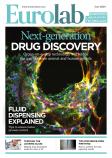Technologising animal disease models for drug discovery
With the spotlight focusing on groundbreaking advancements in biomedical research, the world has once again been reminded of the critical role that animal disease models play in the development of life-saving drugs. Creative Biolabs is a leading biotechnology company that is dedicated to enhancing therapeutic innovation through the development of animal disease models.
The company excels in PK/PD modelling, which plays an essential role in drug discovery and development and aids in understanding drug absorption, distribution, metabolism, and excretion, as well as the relationship between drug concentration and pharmacological effect.
Integrating experimental data and diverse methodologies, the firm can deliver reports for optimising drug dosing regimens, predicting drug behaviour in humans, and guiding decision-making in preclinical trials.
One stream at Creative Biolabs involves genetically engineered models that are instrumental in providing researchers with more accurate and reliable representations of human disease conditions. By precisely manipulating the genetic makeup of animals through knock-out, knock-in, and knock-down approaches, the scientists can establish transgenic mouse models mimicking the genetic variations found in patients suffering from various diseases, thereby unravelling the complex mechanisms underlying these diseases and paving the way for the discovery of new drug targets.
Through its GEM development services, the company has successfully created highly sophisticated models for cancer, cardiovascular disorders, neurodegenerative diseases, autoimmune conditions, etc. These models facilitate the study of disease progression, the evaluation of drug safety and efficacy, and the exploration of personalized medicine approaches.
Another innovation on offer is xenograft model development, which involves the implantation of human cancer cells into immunodeficient mice, providing an environment conducive to the growth and observation of tumours. With these models, researchers can assess drug responses, study tumour biology, and conduct preclinical evaluations. The company’s scientists possess expertise in developing a wide range of xenograft models, including patient-derived xenograft (PDX), cell line-derived xenograft (CDX), and humanised mice.








